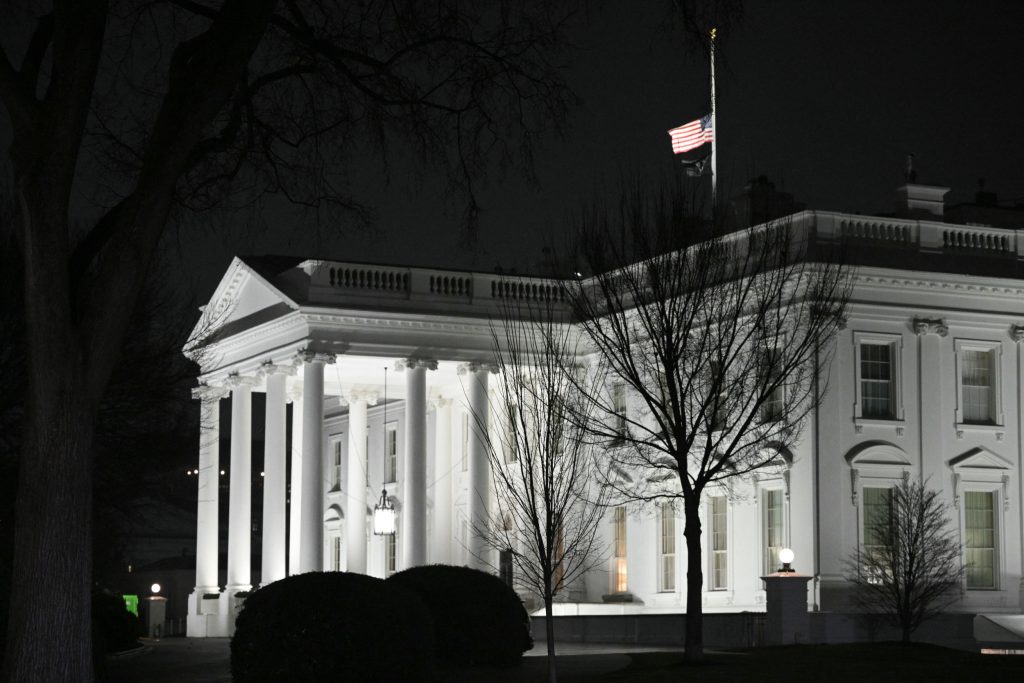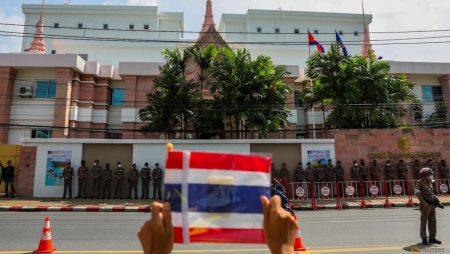The passing of former President Jimmy Carter at the age of 100 has prompted President Joe Biden to order U.S. flags to be flown at half-staff for a period of 30 days, commencing on Sunday, January 7th. This period of national mourning coincides with the upcoming presidential inauguration of Donald Trump, scheduled for January 20th, creating a unique confluence of events. The half-staff order, mandated by the U.S. Flag Code for deceased presidents and former presidents, will cast a somber tone over what is typically a celebratory occasion for the incoming president and his supporters. This juxtaposition of mourning and celebration has the potential to generate complex reactions, especially given the existing political dynamics.
The half-staff directive is rooted in the U.S. Flag Code, which stipulates a 30-day period of lowered flags following the death of a sitting or former president. This protocol underscores the respect and honor accorded to individuals who have held the nation’s highest office. While the timing of President Carter’s death creates an unusual backdrop for the inauguration, it necessitates adherence to established protocol. The visual representation of national mourning, through lowered flags, will undoubtedly influence the atmosphere surrounding the inauguration ceremonies. The potential for this solemnity to be perceived as a political statement remains a point of contention.
Jimmy Carter, the longest-lived American president, passed away peacefully at his Georgia home surrounded by family. His death, following a period of hospice care, marks the end of a life dedicated to public service. He assumed the presidency during a turbulent period in American history and focused his efforts on improving the lives of all Americans. Beyond his presidency, Carter continued his dedication to public service through The Carter Center, focusing on human rights, conflict resolution, and global health initiatives. His contributions both during and after his time in office have garnered widespread respect and admiration, solidifying his legacy as a dedicated public servant.
While the relationship between former President Carter and President-elect Trump has been characterized by political differences, Trump offered a tribute to Carter upon learning of his death. He acknowledged Carter’s commitment to the country and the efforts he made to improve the lives of Americans. Despite their differing political philosophies, Trump expressed respect for Carter’s dedication and recognized his consequential contributions, both during and after his presidency. This gesture, while acknowledging their disagreements, highlights the respect traditionally afforded to those who have held the highest office.
The confluence of the inauguration and the national mourning period for President Carter has generated diverse reactions. President Biden and First Lady Jill Biden issued a statement honoring Carter’s leadership and humanitarian work, emphasizing the global impact of his efforts to promote peace, human rights, and alleviate suffering. They underscored the personal connection many felt with Carter, describing him as a “dear friend” to millions. This sentiment reflects the broad respect and admiration Carter garnered throughout his life.
President-elect Trump also issued a statement acknowledging Carter’s passing, expressing respect for his love of country and his efforts to make America a better place. While acknowledging their strong philosophical and political disagreements, Trump emphasized Carter’s consequential contributions and offered condolences to his family. This public statement navigates the complex terrain of political differences while maintaining a tone of respect for a former president during a period of national mourning. The convergence of these events underscores the complexities of navigating political differences while upholding established protocols and honoring the legacies of past leaders. The lowered flags, a symbol of mourning, will serve as a stark reminder of the passing of a prominent figure in American history, even as the nation inaugurates its new leader.










